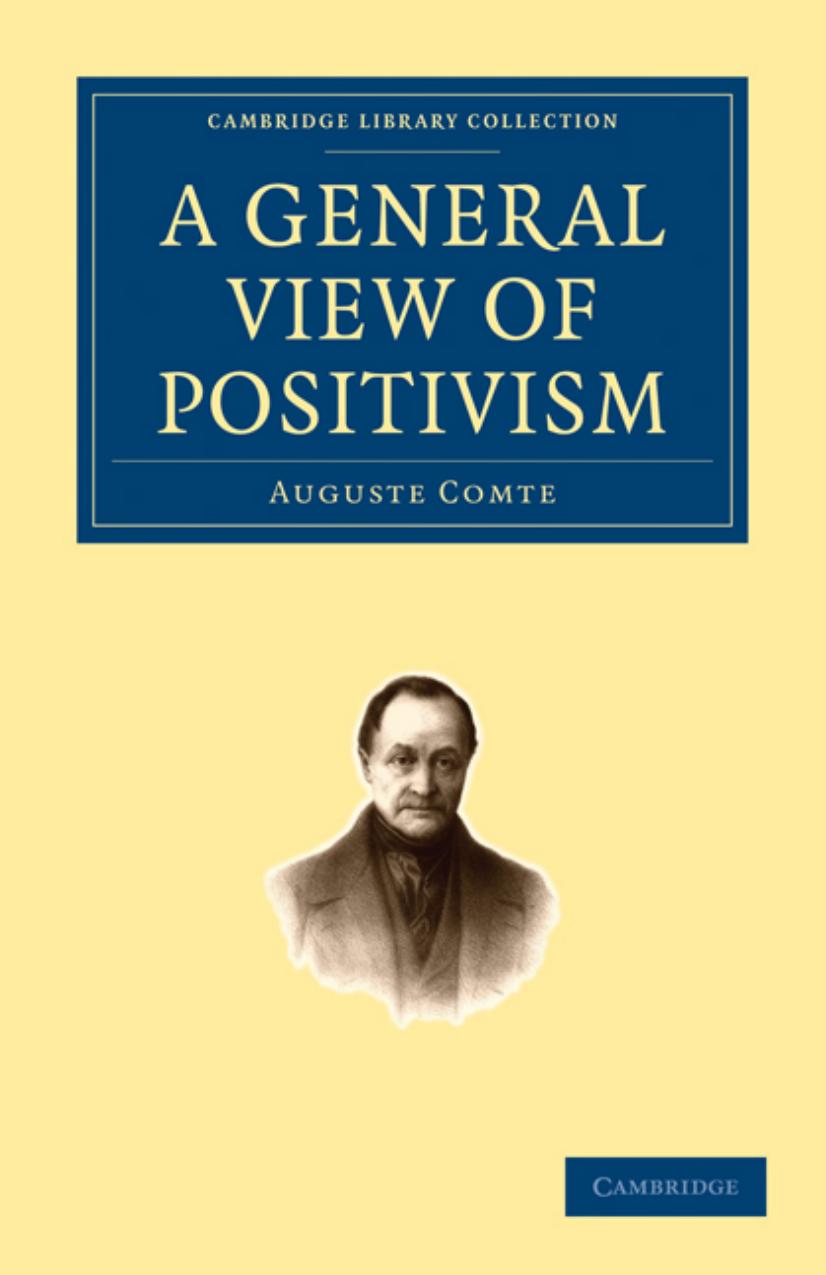A General View of Positivism by Auguste Comte

Author:Auguste Comte
Language: eng
Format: azw3, epub, pdf
Tags: Philosophy
Publisher: Standard Ebooks
Published: 2018-05-22T18:19:15+00:00
IV The Influence of Positivism Upon Women
In their action, then, upon society, philosophers may hope for the energetic support of the working classes. But the regenerating movement requires still the cooperation of a third element, an element indicated by our analysis of human nature, and suggested also by historical study of the great crisis of modern times.
The moral constitution of man consists of something more than Intellect and Activity. These are represented in the constitution of society by the philosophic body and the proletariate. But besides these there is Feeling, which, in the theory put forward in the first chapter of this work, was shown to be the predominating principle, the motive power of our being, the only basis on which the various parts of our nature can be brought into unity. Now the alliance between philosophers and working men, which has been just described, however perfectly it may be realized, does not represent the element of Feeling with sufficient distinctness and prominence.
Certainly without Social Feeling, neither philosophers nor proletaries can exercise any real influence. But in their case its source is not sufficiently pure nor deep to sustain them in the performance of their duty. A more spontaneous and more perennial spring of inspiration must be found.
With the philosopher social sympathies will never be wanting in coherence, since they will be connected with his whole system of thought; but this very scientific character will deaden their vigour, unless they are revived by impulses in which reflection has no share. Roused as he will be by the consciousness of public duty to a degree of activity of which abstract thinkers can form no conception, the emotions of private life will yet be not less necessary for him than for others. Intercourse with the working classes will be of the greatest benefit to him; but even this is not enough to compensate the defects of a life devoted to speculation.
The sympathies of the people again, though stronger and more spontaneous than those of the philosopher, are, in most cases, less pure and not so lasting. From the pressure of daily necessities it is difficult for them to maintain the same consistent and disinterested character. Great as are the moral advantages which will result from the incorporation of the people in modern society, they are not enough by themselves to outweigh the force of self-interest aroused by the precarious nature of their position. Emotions of a gentler and less transient kind must be called into play. Philosophers may relieve the working classes from the necessity of pressing their own claims and grievances; but the fact still remains, that the instincts by which those claims are prompted are personal rather than social.
Thus, in the alliance which has been here proposed as necessary for social reorganization, Feeling, the most influential part of human nature, has not been adequately represented. An element is wanting which shall have the same relation to the moral side of our constitution, as the philosophic body has with Intellect, and the people with Activity.
Download
A General View of Positivism by Auguste Comte.epub
A General View of Positivism by Auguste Comte.pdf
This site does not store any files on its server. We only index and link to content provided by other sites. Please contact the content providers to delete copyright contents if any and email us, we'll remove relevant links or contents immediately.
The remains of the day by Kazuo Ishiguro(8338)
Tools of Titans by Timothy Ferriss(7737)
Giovanni's Room by James Baldwin(6749)
The Black Swan by Nassim Nicholas Taleb(6721)
Inner Engineering: A Yogi's Guide to Joy by Sadhguru(6405)
The Way of Zen by Alan W. Watts(6255)
Asking the Right Questions: A Guide to Critical Thinking by M. Neil Browne & Stuart M. Keeley(5320)
The Power of Now: A Guide to Spiritual Enlightenment by Eckhart Tolle(5291)
The Six Wives Of Henry VIII (WOMEN IN HISTORY) by Fraser Antonia(5197)
Astrophysics for People in a Hurry by Neil DeGrasse Tyson(4973)
12 Rules for Life by Jordan B. Peterson(4138)
Housekeeping by Marilynne Robinson(4016)
The Ethical Slut by Janet W. Hardy(4008)
Skin in the Game by Nassim Nicholas Taleb(3941)
Double Down (Diary of a Wimpy Kid Book 11) by Jeff Kinney(3874)
Ikigai by Héctor García & Francesc Miralles(3830)
The Art of Happiness by The Dalai Lama(3818)
Skin in the Game: Hidden Asymmetries in Daily Life by Nassim Nicholas Taleb(3695)
Walking by Henry David Thoreau(3658)
